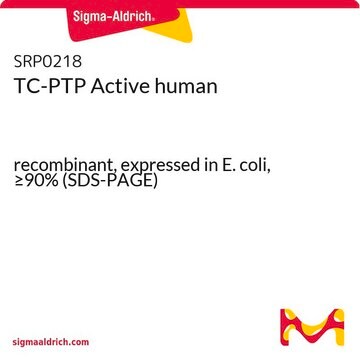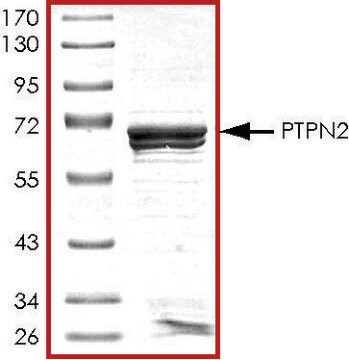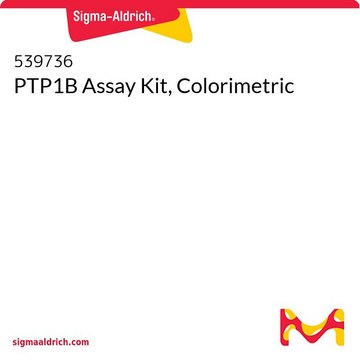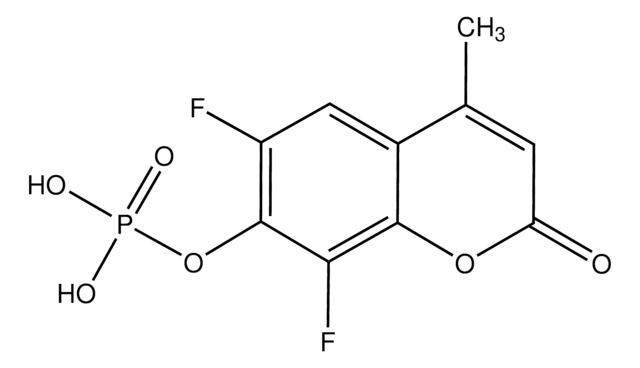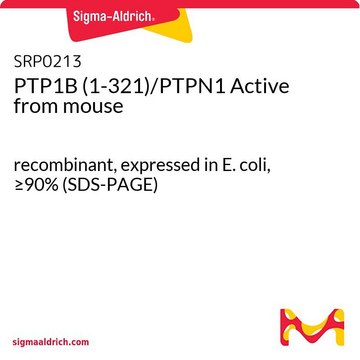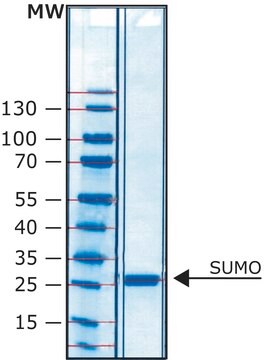SRP0212
PTP1B (1-321)/PTPN1 Active human
recombinant, expressed in E. coli, ≥90% (SDS-PAGE)
Synonym(e):
PTPN1, Protein tyrosine phosphatase, non-receptor type 1
About This Item
Empfohlene Produkte
Biologische Quelle
human
Rekombinant
expressed in E. coli
Assay
≥90% (SDS-PAGE)
Form
aqueous solution
Mol-Gew.
63.3 kDa
Verpackung
pkg of 20 μg
Lagerbedingungen
avoid repeated freeze/thaw cycles
Konzentration
0.84 mg/mL
NCBI-Hinterlegungsnummer
UniProt-Hinterlegungsnummer
Versandbedingung
dry ice
Lagertemp.
−70°C
Angaben zum Gen
human ... PTPN1(5770)
Allgemeine Beschreibung
Anwendung
Biochem./physiol. Wirkung
Einheitendefinition
Physikalische Form
Angaben zur Herstellung
Lagerklassenschlüssel
10 - Combustible liquids
WGK
WGK 2
Flammpunkt (°F)
Not applicable
Flammpunkt (°C)
Not applicable
Hier finden Sie alle aktuellen Versionen:
Analysenzertifikate (COA)
Die passende Version wird nicht angezeigt?
Wenn Sie eine bestimmte Version benötigen, können Sie anhand der Lot- oder Chargennummer nach einem spezifischen Zertifikat suchen.
Besitzen Sie dieses Produkt bereits?
In der Dokumentenbibliothek finden Sie die Dokumentation zu den Produkten, die Sie kürzlich erworben haben.
Kunden haben sich ebenfalls angesehen
Unser Team von Wissenschaftlern verfügt über Erfahrung in allen Forschungsbereichen einschließlich Life Science, Materialwissenschaften, chemischer Synthese, Chromatographie, Analytik und vielen mehr..
Setzen Sie sich mit dem technischen Dienst in Verbindung.
